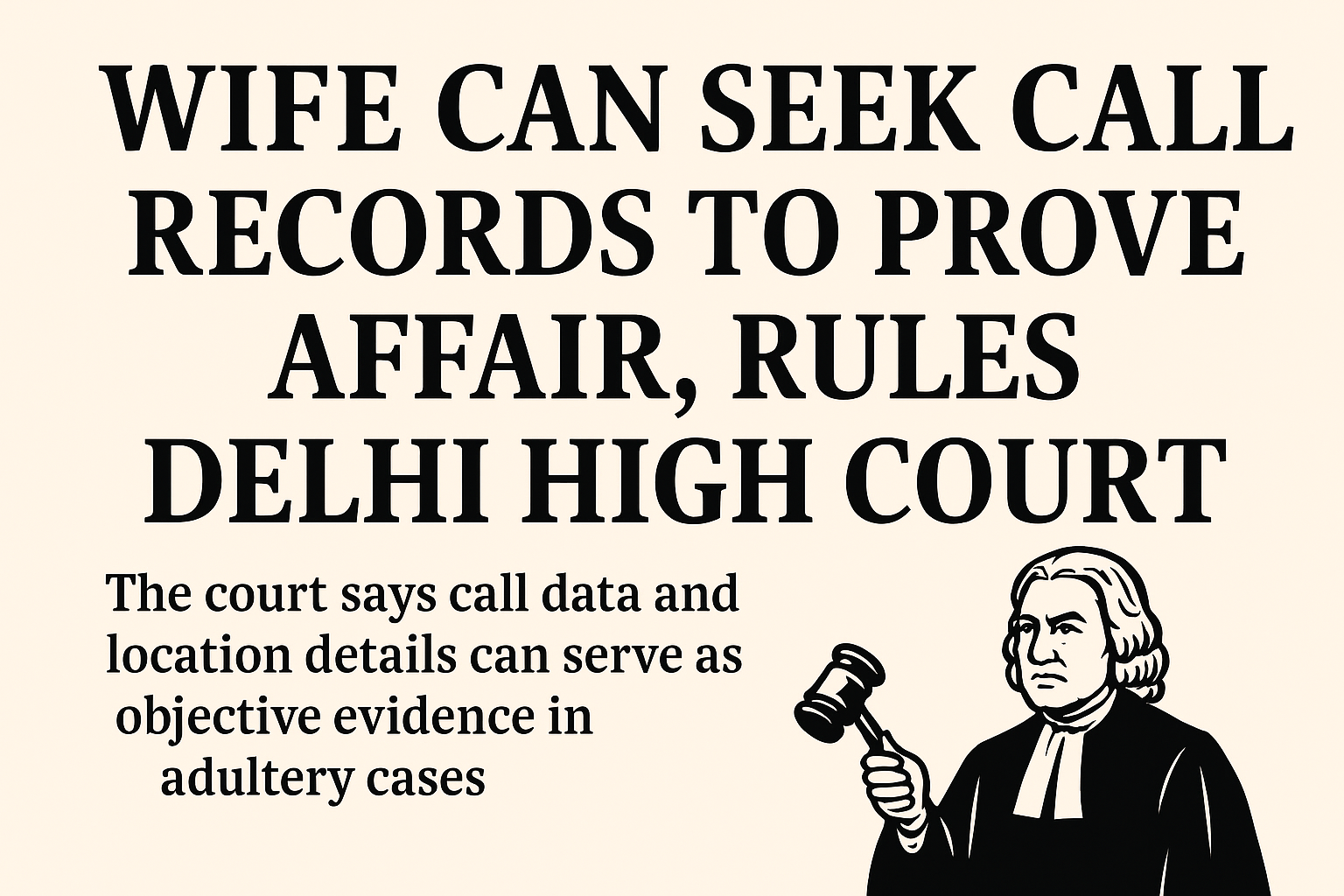
The Delhi High Court has ruled that a wife can ask for the preservation and disclosure of her husband’s call data records (CDR) and location details if she suspects him of having an affair. The order came while the court was hearing a petition filed by a husband and his alleged partner, who challenged an earlier order of a family court. The high court stated that such records are objective pieces of evidence and can play a crucial role in deciding cases of adultery.
A bench of justices Anil Kshetarpal and Harish Vaidyanathan Shankar delivered the verdict, emphasizing that CDR and location data can help confirm or deny allegations of an illicit relationship. The case involved a couple who got married in October 2002 and had two children. In 2023, the wife filed for divorce, accusing her husband of adultery and cruelty. She claimed that her husband was in an illicit relationship with another woman.
The family court, on April 29, 2025, had allowed the wife’s application and directed the station house officer and telecom providers to preserve the husband’s CDR and the alleged partner’s location data. The husband and the alleged partner then approached the high court, arguing that the wife’s demand violated their right to privacy. They claimed it was nothing more than an attempt to harass and damage reputations.
The alleged partner also argued that the application was like a fishing inquiry into private life. She said that merely having telephonic conversations or being in close physical proximity could not automatically prove adulterous conduct. The husband too said that the wife had failed to provide direct evidence of adultery.
However, the Delhi High Court upheld the family court’s order. The bench cited a 2003 Supreme Court ruling in Sharda v. Dharmpal, which stated that limited intrusions into personal privacy are allowed if they are necessary to uncover the truth. The high court said that directing the disclosure of call records and location data was not a speculative exercise, but one closely tied to the allegations.
The court further observed that since these records are maintained neutrally by telecom operators, they can serve as important circumstantial evidence. At the same time, the judges clarified that such data would not interfere with the content of private communications but only show patterns of contact and movement.
This ruling highlights the balance between the right to privacy and the need to establish truth in matrimonial disputes. By allowing such disclosures, the court has given spouses a legal means to substantiate serious allegations like adultery. It also reflects the judiciary’s view that when there is a clash between personal privacy and uncovering possible misconduct, limited and focused access to objective records can be justified.
The decision is likely to have a significant impact on divorce and family cases in the future, as it provides a way for courts to rely on neutral and verifiable evidence instead of assumptions or accusations alone.





















